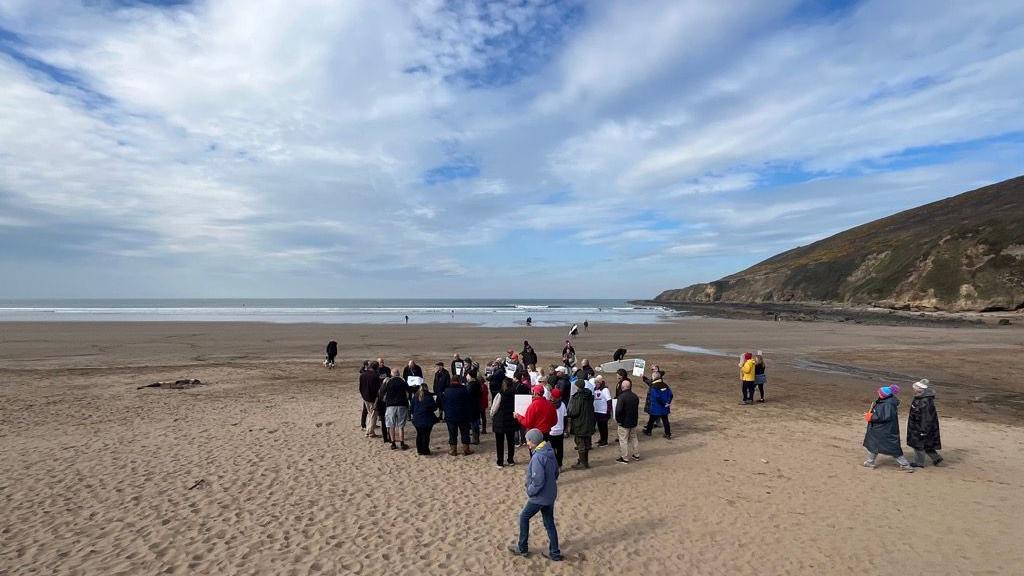Offshore wind farm approval hailed as opportunity
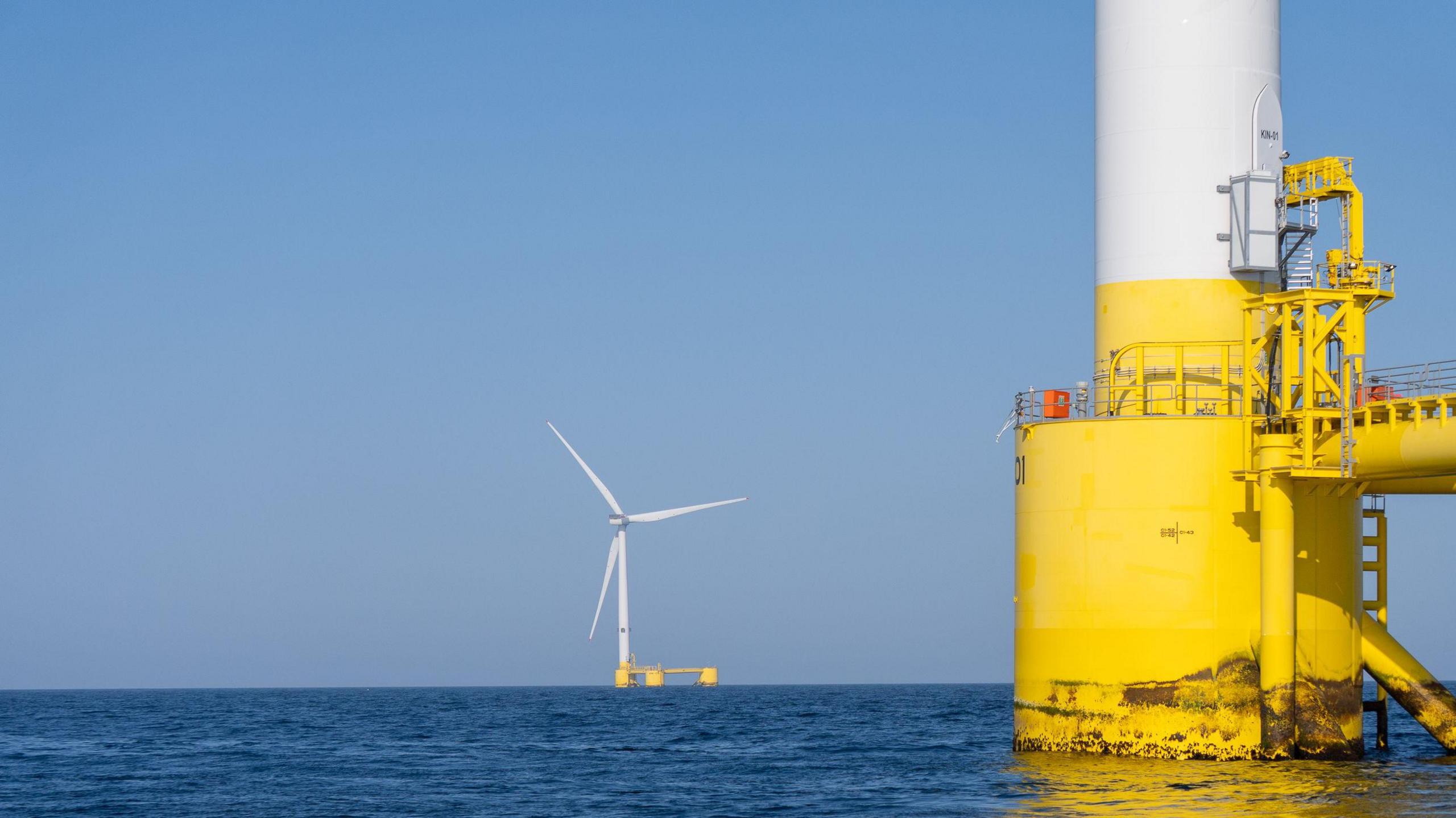
Work on the turbines is expected to start in 2028
- Published
Developers have said it is an "important moment" after a floating offshore wind project received full planning consent.
White Cross, located 52km off the north Devon coast, will feature six to eight floating wind turbines, capable of powering about 135,000 homes, said developers Flotation Energy and Cobra.
The decision to bring the electricity cable from the 100 megawatt project ashore at Saunton Sands sparked significant backlash over environmental damage, disruption to tourism, and increased heavy vehicle traffic.
"In response to feedback, we have adapted our plans to minimise environmental and social impacts," said Sam Park, senior project manager.
North Devon councillors granted consent for the onshore infrastructure in May, while the Marine Management Organisation issued a Marine Licence for offshore construction on 16 July, external.
Mr Park said: "This is an important moment for the White Cross Offshore Windfarm, and for floating offshore wind in the Celtic Sea.
"This gives us a valuable opportunity to harness pioneering technology to help deliver the energy transition in the South West."
The windfarm's cables will land at Saunton Sands and run underground for five miles (8km) to a new substation near East Yelland.
The company said "advanced trenchless technology" will be used to avoid surface disruption in sensitive ecological areas such as Braunton Burrows Special Area of Conservation and the Taw-Torridge Estuary Site of Special Scientific Interest.
Work is expected to start on the cabling in 2027 and the wind farm in 2028, according the developers.
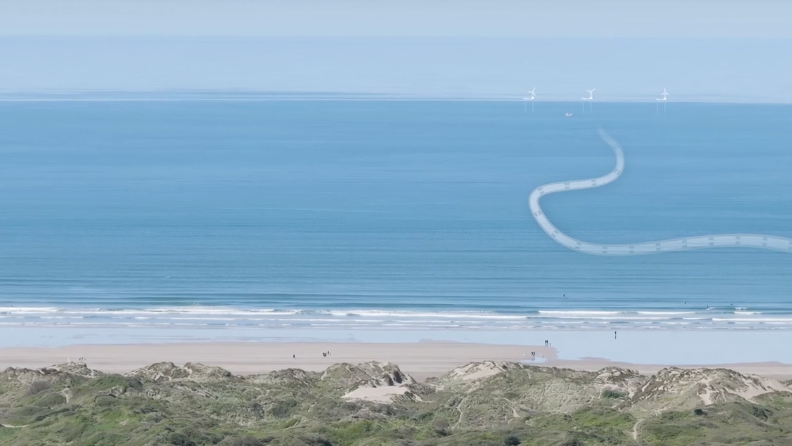
The wind farm's cables will land at Saunton Sands
Follow BBC Devon on X, external, Facebook, external and Instagram, external. Send your story ideas to spotlight@bbc.co.uk, external.
- Published7 May
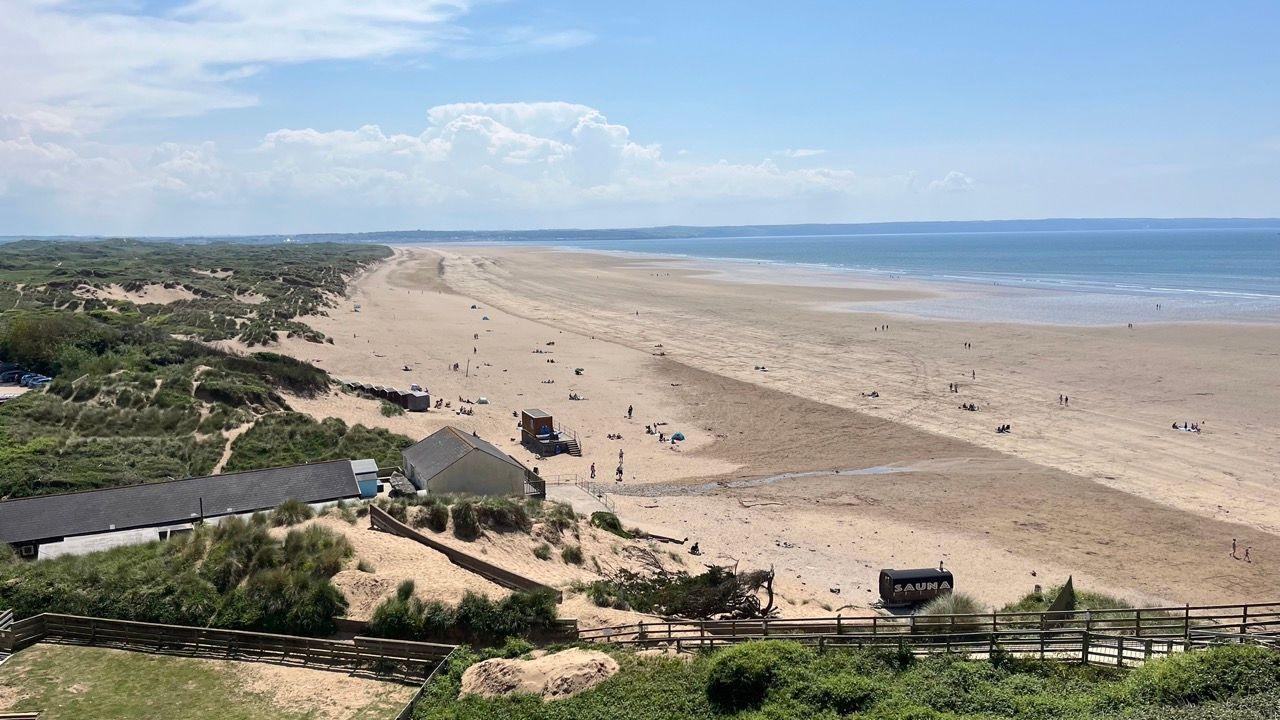
- Published2 May
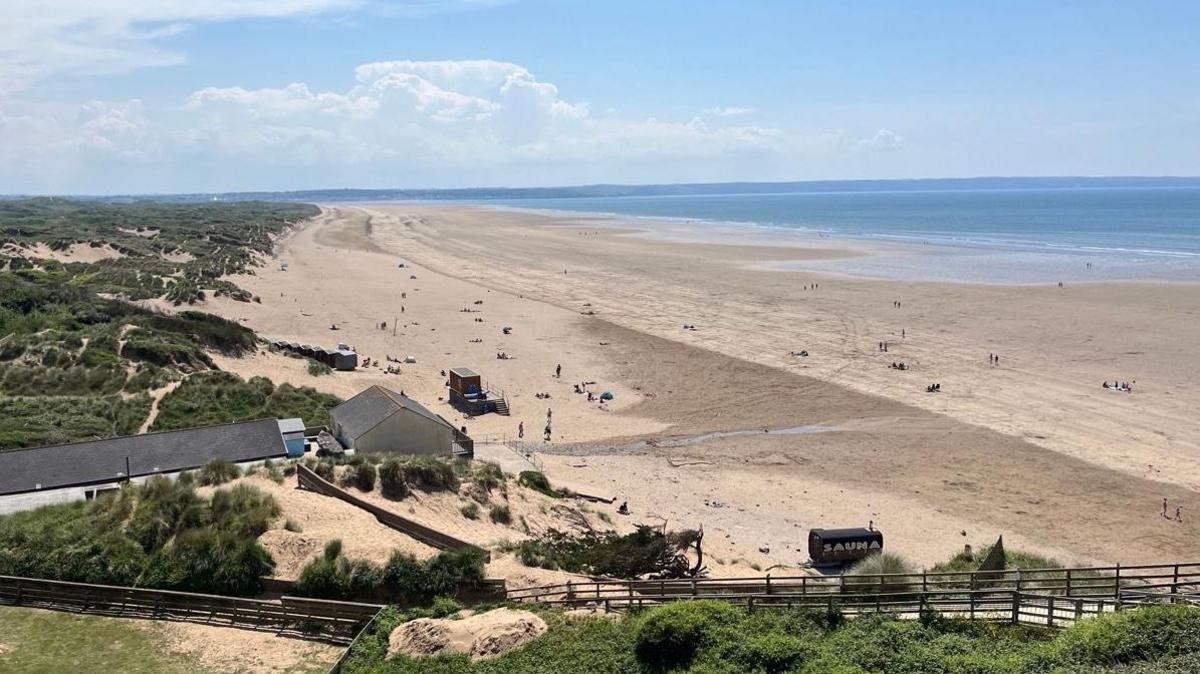
- Published10 April
